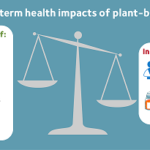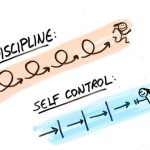Social media has become an integral part of our lives, especially in the wake of the COVID-19 pandemic. We use it to stay connected with our friends and family, to share our thoughts and opinions, to learn new things and to entertain ourselves.
However, social media also has a dark side that can affect our mental health negatively.
In this blog post, we will explore some of the common ways that social media can harm our well-being and offer some tips on how to cope with them.
⇒ One of the main drawbacks of social media is that it can create unrealistic expectations and comparisons. We often see curated and edited versions of other people’s lives, which can make us feel inadequate or dissatisfied with our own.
We may also feel pressured to conform to certain standards of beauty, success or happiness that are not realistic or attainable. This can lead to low self-esteem, anxiety, depression or body image issues.
⇒ Another way that social media can affect our mental health is by disrupting our sleep patterns and circadian rhythms. Many of us are guilty of scrolling through our feeds late at night or checking our notifications first thing in the morning.
This can interfere with our natural sleep cycles and make us feel tired, irritable or moody. Lack of sleep can also impair our cognitive functions, such as memory, concentration and decision making.
⇒ A third way that social media can harm our mental health is by reducing our face-to-face interactions and social skills. While social media can help us stay in touch with distant friends and relatives, it can also make us less likely to engage in meaningful conversations and relationships with those around us.
We may become more isolated, lonely or detached from reality. We may also lose some of the essential social cues and nuances that are present in real-life communication, such as tone of voice, facial expressions and body language.
So how can we manage the impact of social media on our mental health and enjoy its benefits without falling into its traps?
Here are some suggestions:
⇒ Be mindful of how much time you spend on social media and set limits for yourself: You can use apps or tools that track your usage or block certain sites during certain hours. You can also turn off your notifications or put your phone on silent mode when you need to focus on other tasks or activities.
⇒ Be selective of who you follow and what you consume on social media: You can unfollow or mute accounts that make you feel bad about yourself or that spread negativity or misinformation. You can also follow accounts that inspire you, educate you or make you laugh.
⇒ Be authentic and honest on social media and avoid comparing yourself to others: You don’t have to post everything that happens in your life or pretend that everything is perfect. You can also acknowledge your feelings and challenges and seek support from your online community if you need it.
⇒ Be respectful and kind on social media and avoid engaging in online conflicts or arguments: You can express your opinions and views without attacking or insulting others. You can also block or report users who harass or bully you or others.
⇒ Be balanced and diverse in your online and offline activities and interactions: You can use social media as a tool to enhance your real-life relationships, not replace them. You can also find hobbies and interests that enrich your life and make you happy outside of the digital world.
Social media can be a powerful and positive force in our lives if we use it wisely and responsibly.
By being aware of its potential risks and taking steps to protect our mental health, we can enjoy its benefits without compromising our well-being.






